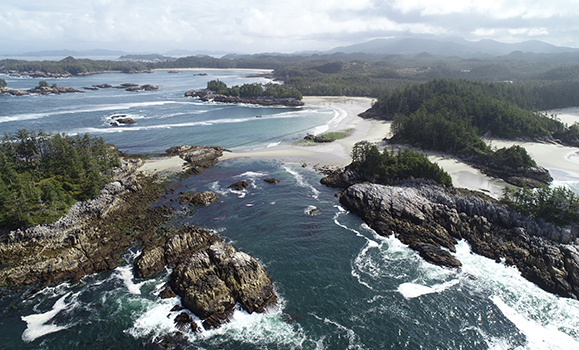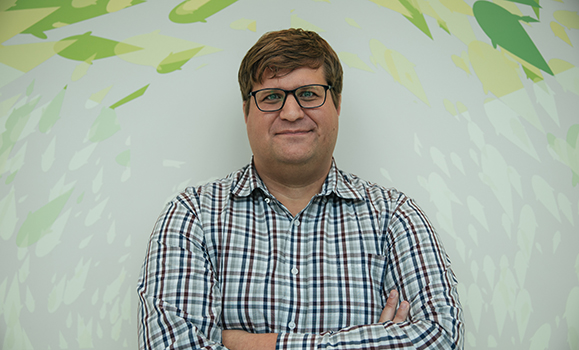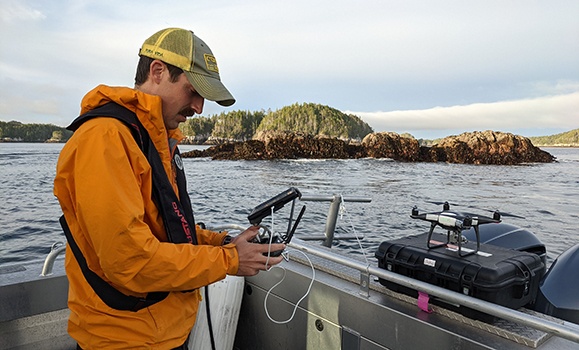The SnapshotĚý
Backed by a $2.5-million grant fromĚý, the Building Bridges research project, led by Đ°ÄĂĹÁůşĎ˛ĘżŞ˝±, is hardwiring the AI revolution and the ocean sector by empowering researchers and industry with new digital tools to gather, analyze and share data.Ěý
The ChallengeĚý
Traditionally, when ocean researchers want to study how mussel populations change over time it involves hip waders and slogging through tidal waters, counting molluscs and jotting notes — again and again, rain or shine. It’s difficult and time-consuming work, but the insights the data provide make it invaluable.Ěý
A barometer of oceanĚýhealth, changes in how these super sensitive shellfish gather on rocks provide important information about their evolving ecosystems and the impacts of climate change. It can also help Canadian mussel farmers, who produced over 20,000 tonnes of the shellfish each year, to understand how best to build the industry on the country’s coasts. Ěý

“We have an intertidal mapping program where researchers are out in the field, they're measuring, they're counting, they're kneeling down and looking at individual pieces. But they can only get to so many places, it's dangerous. We're out on the West Coast with steep rocky shores. And some of the places we can't even get to,” says Will McInnes, a Geographic Information System specialist at British Columbia-basedĚý.Ěý
Hakai is one of Đ°ÄĂĹÁůşĎ˛ĘżŞ˝±â€™s six ocean research partners in the Building Bridges research project. Led by Dal and supported by a $2.5-million grant from Canada’s Ocean Supercluster, theĚýendeavourĚýaims to maximize the impact of ocean research with artificial intelligence (AI).Ěý
Dal data scientist Dr. Mike Smit, the project's principal investigator, emphasizes the urgent need for AI to empower ocean researchers in their fieldwork and to ensure the data they gather has as much impact as possible.

Dal’s Dr. Mike Smit leads the Building Bridges project. (Cody Turner photo)
“Every piece of data has potential value to us. If that data sits locked in a desk drawer, filing cabinet or hard drive, it’s not bringing benefits to Canadians that it should be. AI can ease the data gathering process and dramatically increase our ability to share, analyse and learn from it,” he says.
The SolutionĚý
Ushering the AI revolution into Canada’s ocean economy will require a new generation of professionals who understand the fast-evolving digital tools and how they can be applied to better understand the waters that surround us, says Dr. Smit.Ěý
“We've seen

